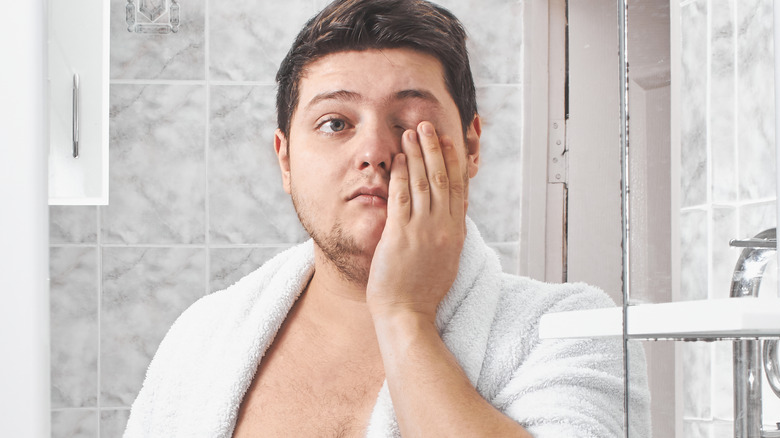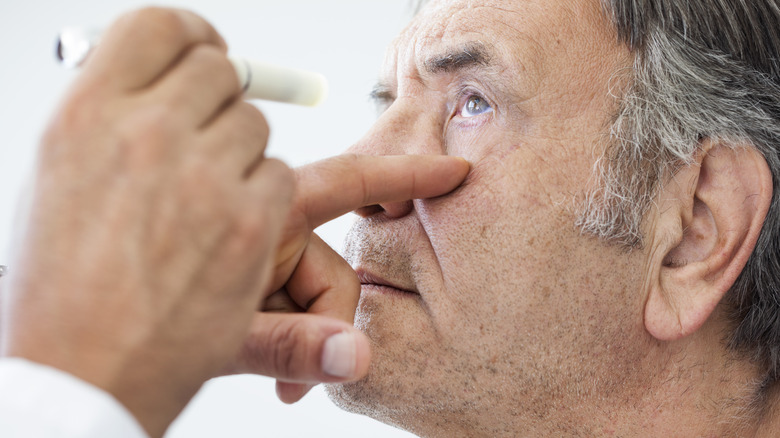What It Really Means When You Wake Up With Swollen Eyelids
Rolling out of bed only to discover that one or both of your eyelids has swelled up overnight isn't anyone's idea of a great morning start. Waking up with swollen eyelids can be the result of several things, some circumstantial and others health-related.
In a 2017 national study conducted through the University of Michigan, researchers identified three non-emergent eye conditions that accounted for more than 86,000 emergency room visits out of 377,000 eye-related ER visits that took place over 14 years. Among the eye conditions that patients felt warranted emergency medical care, swollen eyelids were one of them.
In order to receive proper care, you might want to determine if an external factor could be causing your swollen eyelids before calling your doctor or racing to the ER. Crying, contact lens irritation, light sensitivity, or a bug bite could all contribute to a mild case (via All About Vision). Eyelid swelling accompanied by itchy, teary, or red eyes can also be a symptom of an allergic reaction to irritants such as pet dander, pollen, dust mites, or mold (via MedlinePlus).
Health conditions that can cause eyelid swelling
In some cases, swollen eyelids can be attributed to certain health conditions such as conjunctivitis or styes (via LiveStrong). With conjunctivitis, also known as pink eye, inflammation in the eye is usually due to a bacterial or viral infection (via Mayo Clinic) that can cause discharge in the eye and the eyelid to swell. "Pink eye usually starts in one eye, with symptoms of eye redness and some pain accompanied by some slight lid swelling. After a few days, similar symptoms start in the second eye, usually not to the same degree as experienced in the first eye," optometrist Norman Shedlo told LiveStrong. In the case of a stye, blocked oil glands along the eyelashes become infected, producing one or more painful, mildly swollen red bumps on the eyelid (via Cleveland Clinic).
Most cases of swollen eyelids can be treated at home. Sometimes, however, styes may need to be drained by a doctor, or a case of pink eye that doesn't go away on its own may indicate a more serious infection. If you have a swollen eyelid that worsens or hasn't improved within two weeks, or if you experience symptoms of anaphylaxis, do seek prompt medical attention (via LiveStrong).


